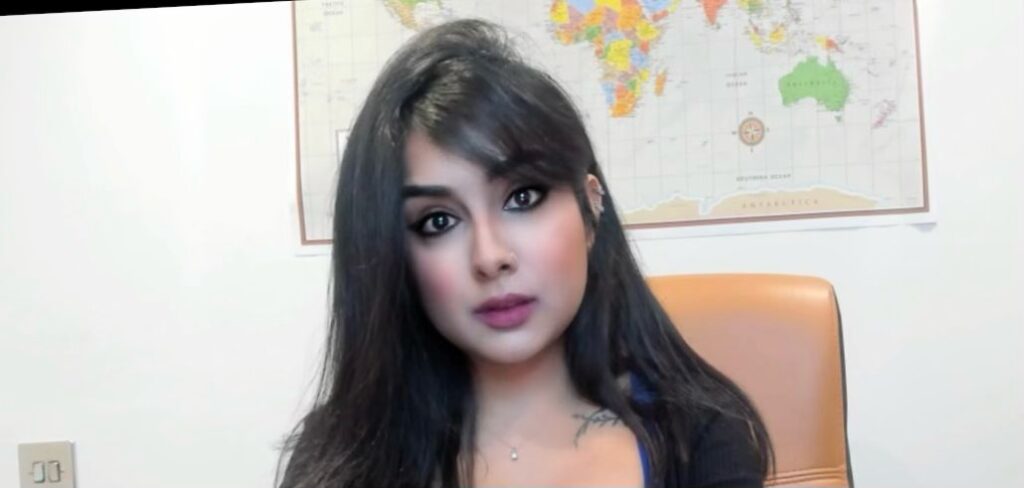
In Pakistan, religion exerts a significant influence over society. This often results in restricted freedom of expression for those with different views. George*, when he was living in Pakistan, always had to keep his thoughts and questions to himself: he knew he could not talk about them with anyone. While talking to me in a private Twitter conversation, he said that he had kept his thoughts, ideas and questions to himself his whole life, as he never found a safe environment around him.
‘I turned 45, and until then, I found no space to talk about my thoughts, even in a small circle,’ he said. ‘If we were sitting and talking about something, and I said something about religion, they would start saying, “What are you saying? You should not be talking like that.”‘
Twitter Spaces was the first platform where George was able to share his thoughts, using an anonymous ID. He found Spaces on atheism, the evolution of religions, blasphemy allegations, human rights, social issues, and every topic that he had always wanted to talk about. He found people like him who also wanted to engage in live conversation and share their thoughts on these controversial subjects.
Twitter launched ‘Spaces’ in December 2020, initially as a beta test and then as freely accessible to everyone on the platform. Spaces allows anyone to host and participate in live audio conversations with other users on the platform. Since its emergence, ex-Muslims from Pakistan have been using this feature to talk about issues that were previously forbidden. They share their stories, voice their concerns, and connect with others who understand their experiences.
George’s story highlights the challenges faced by individuals in Pakistan who do not conform to religious norms. Although his family knows about his views on religion, he feels that he cannot share his opinions with them, even at home. For him, Twitter has become a valuable platform that has allowed him to finally express his views without fear.
Pakistan’s penalties for blasphemy, apostasy, or atheism are among the harshest in the world. According to a BBC report of 2017, ‘Although atheism is not technically illegal in Pakistan, apostasy is deemed to be punishable by death in some interpretations of Islam. As a result, speaking publicly can be life-threatening.’ Recently, as reported by Kunwar Khuldune Shahid in The Diplomat, Pakistan has reinforced its laws even further, adding to the already oppressive environment for Pakistani atheists and agnostics. Social media has become the only option for them to express their views, but the government has tightened its grip on these platforms too. It has become increasingly challenging for them to connect with like-minded individuals.
From Facebook to Twitter
Smith* and Syed Rahat Shah joined Twitter after feeling that it was not safe to share their thoughts on Facebook, where family and friends were present. During a Zoom meeting, Smith told me that he had filtered out everyone he knew in real life from his Twitter account. Initially, he used his real name, but later changed it to an alternative account, although he still uses his own picture. He was outspoken in real life, but noticed that people were not willing to listen to him. During a gathering, someone asked him to recite kalma (a declaration of Islamic belief in the oneness of God and the prophethood of Muhammad) to prove that he was a Muslim. Since then, he avoids talking about religion offline. On Twitter, his main focus is science and technology, but he occasionally discusses religion in Spaces and gives his opinion.
During a WhatsApp call, Syed Rahat Shah said that he identifies more as a cultural Muslim, despite not believing in any religion. He started criticising religion on his personal Facebook profile, specifically its laws relating to women. However, every time he did so, his brothers or someone from his family would shut him down: ‘It became extremely difficult to question religious practices. In Pakistan, I used to feel like I had a lot to say, but there was no space or acceptance for it.’
After Twitter released Spaces for everyone, Shah started to join some of them in his free time. There he found the freedom to say what he has been keeping within himself for years. ‘I joined Spaces initially, where people would talk about social issues and also discuss religion, like how it causes issues. I would join those Spaces and speak my heart out. Now, I feel like the frustration I had inside me that I couldn’t express has gone.’
Alice*, in a Zoom meeting, said that she identifies as agnostic. Talking further, she said that Generation Z are very lucky as they have many platforms and resources where they can easily access the information that she and people of her generation took years to find. ‘When we were growing up, we neither had that knowledge nor access to platforms where we could seek the information we wanted and network with like-minded people,’ she said. ‘It was especially hard for young girls who were curious. They had no ways to satisfy their curiosity as there were stricter societal and cultural rules in place for them.’
Finding like-minded people
Grace* had a similar experience. She told me, also via Zoom, that a couple of years ago, she had been going through some personal problems. In that phase, she tried to connect with God. She decided to read the Quran in translation. She read thirteen chapters; with each chapter, her confusion about her religion increased.
‘I started listening to Quran with translation on YouTube during my daily commute, which was a forty to forty-five-minute drive from my house to my office,’ she told me. ‘However, I quickly became confused because, in every second or third verse, there was a mention of hell and the punishment for sinners.’
Two of her friends introduced her to the YouTube channel of Harris Sultan, an ex-Muslim Atheist activist and the author of The Curse of God: why I left Islam. She started watching his videos, and this made her realise that she was not alone. There were other people like her who had the same confusion or concerns about religion.
Grace therefore decided to set up her own YouTube channel. Her channel focuses on social issues but religion comes in the discussion in one way or another. Last year, she joined Twitter, where she found that people were more responsive and open to discussion. ‘Twitter also provided the anonymity to express opinions freely, which made the response time much faster,’ she says. ‘I started visiting Twitter spaces and found other people like me there.’
Nuriyah Khan is a well-known ex-Muslim who runs her own YouTube channel. She observes that Twitter spaces can become toxic quickly. As a woman and a host, she feels empowered by the ability to mute or remove disruptive individuals. As she told me via Whatsapp, ‘Twitter Spaces and YouTube each have their unique benefits and drawbacks. Twitter Spaces are great for quick connections, whereas YouTube is better for a larger audience and more extended conversations.’
Are Twitter Spaces safe?
A Twitter user with the name A(nti)theist, whom I spoke to via WhatsApp, said that Twitter provides better security and privacy than other social networking platforms. However, he said that people should be careful not to offend others, especially when discussing religion. In his view, atheists should avoid attacking religious figures and instead focus on the religion’s ideology.
In the view of Harris Sultan (via WhatsApp), Twitter Spaces may not be the best platform for dissidents. He argues that the platform encourages users to create fake or anonymous accounts, which can be risky for those discussing sensitive topics.
Sultan also spoke about internet censorship in Pakistan. ‘The Pakistani government loves to censor anyone they find critical of religion or the army,’ he explained. ‘They don’t have access to Twitter users’ information. Still, they do regularly ask Twitter to ban accounts they don’t like, which puts the accounts of dissidents under the threat of a permanent ban in Pakistan. Eventually, they do get banned – like my ID @TheHarrisSultan.’
Most of the Twitter users who were interviewed for this article reside outside Pakistan. When asked about the digital security measures they take before going on the internet, most of them said they do not feel themselves in danger because they do not live in Pakistan.
Nuriyah Khan, however, takes her safety very seriously (for this reason, she did not tell me her location). She does not have a LinkedIn account as she does not want people to know where she works and track her down. Instead, she just uses Twitter and YouTube. She has deleted her accounts on every other social media platform, except her private Instagram account.
Blasphemy and the digital world in Pakistan
Yasser Latif Hamdani is a barrister who qualified at Lincoln’s Inn and is now based in Islamabad. When I contacted him via Whatsapp, he told me that the government heavily censors the internet through the Pakistan Telecommunication Authority, which is empowered to block content that is deemed un-Islamic or immoral, including materials that may be considered blasphemous or critical of Islam. Hamdani stresses that the internet is heavily controlled through Section 37 of the Prevention of Electronic Crimes Act (PECA), which violates the fundamental right to freedom of expression in Pakistan. This section grants the Government unrestricted powers to block access or remove speech not only on the internet, but also as transmitted through any device.
As Hamdani explains: ‘Section 37 of the PECA is used to block content online which is deemed unIslamic or immoral. Online defamation is also a criminal offence under Section 20 of the Act. There are several attempts by successive governments to further restrict social media.’
He also points out that Pakistan’s blasphemy laws are the strictest blasphemy laws in the world. ‘What these laws have done is to weaponise blasphemy allegations. Many of the blasphemy cases are just false but that should not be the point. Freedom of expression necessarily includes within its ambit the freedom to offend, but there is absolutely no appreciation of this right because the society is medieval and largely reactionary.’
Hamdani notes that while there is no law against apostasy in Pakistan, hardly anyone will identify as an ex-Muslim. Pakistan’s constitution guarantees freedom to profess, practise and propagate one’s religion to all citizens of Pakistan regardless of their faith, but at present, no distinct category exists for atheists, agnostics or freethinkers.
‘Any speech that is deemed criticism of the Prophet of Islam or Islam itself poses legal risks,’ writes Hamdani. ‘Section 295 ABC especially [the laws relating to blasphemy against religion, the Quran and the Prophet] might be used to target ex-Muslims. Criticism of the government of the day as such is not a crime, and indeed, sedition law was struck down recently. However, criticism of the army or the judiciary might land people in trouble both legally and extralegally.’
Twitter Spaces have given ex-Muslims in Pakistan a safe platform to express themselves and engage with the public on topics that are usually considered taboo in Muslim societies. One of the reasons that such free expression is possible, however, is that only about two per cent of the entire population of Pakistan is present on Twitter.
In real life, on the other hand, the situation for perceived critics of Islam is extremely dangerous. Recently, a Chinese engineer at the Dasu hydropower project in northwestern Pakistan was accused of blasphemy after he highlighted the slow pace of work during Ramadan. In December 2021, a Sri Lankan factory manager in Pakistan was beaten to death and set ablaze by a mob, in an incident reportedly linked to blasphemy.
It is also common in the country for mobs to attack Ahmadi mosques or murder Ahmadiyya Muslims due to their beliefs. In this environment, it is extremely dangerous to speak freely about religion as an ex-Muslim on the internet. In 2017, the government reportedly ‘asked Facebook and Twitter to remove content considered insulting to Islam or Muhammad’. Prior to that, as reported by Shahid, several Facebook pages and accounts of Pakistani ex-Muslims were removed by Facebook on the request of the Pakistani government. Twitter’s better community standards have provided Pakistani ex-Muslims with a platform for assembly and discourse. Time will tell, though, if Spaces will continue to be available to them, or if some may have to bear the consequences of the freedom that they have found there.
*The names of some individuals have been changed on their request.
Enjoy this article? Subscribe to our free fortnightly newsletter for the latest updates on freethought. Or make a donation to support our work into the future.


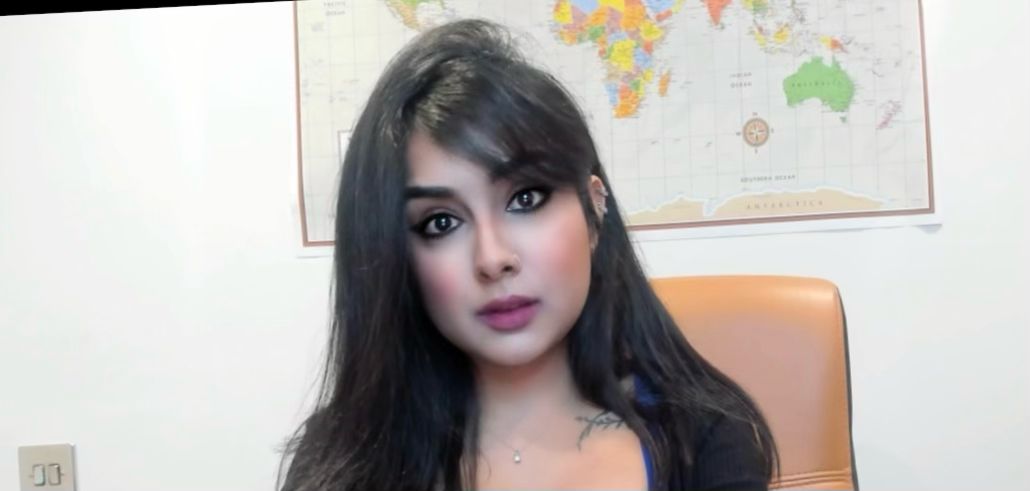
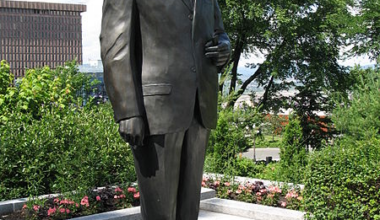

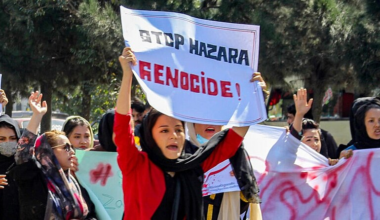

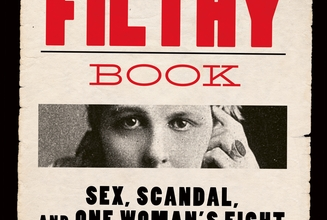
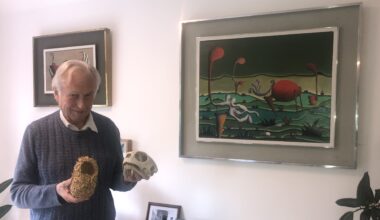
2 comments
What a dumb and ignorant Article lol
Funny how the Islam haters promote the Bigots
I am atheist and still living in Pakistan with hiding my identity due to life thre
Your email address will not be published. Comments are subject to our Community Guidelines. Required fields are marked *
Donate